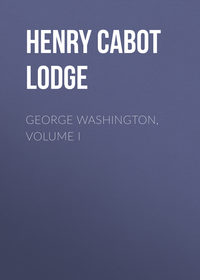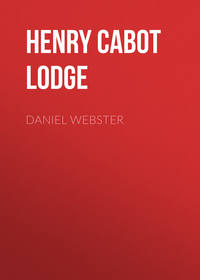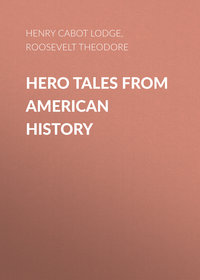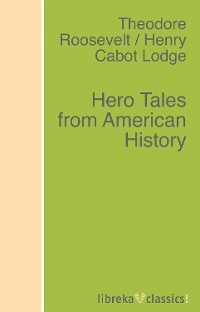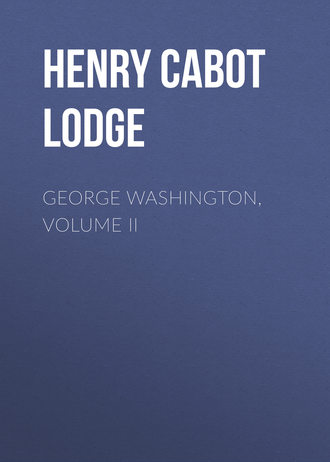 полная версия
полная версияGeorge Washington, Volume II
"First. An indissoluble union of the States under one federal head.
"Second. A regard to public justice.
"Third. The adoption of a proper peace establishment; and,
"Fourth. The prevalence of that pacific and friendly disposition among the people of the United States, which will induce them to forget their local prejudices and policies; to make those mutual concessions which are requisite to the general prosperity; and in some instances to sacrifice their individual advantages to the interest of the community." The same appeal went forth again in his last address to the army, when he said: "Although the general has so frequently given it as his opinion, in the most public and explicit manner, that unless the principles of the federal government were properly supported, and the powers of the Union increased, the honor, dignity, and justice of the nation would be lost forever; yet he cannot help repeating on this occasion so interesting a sentiment, and leaving it as his last injunction to every soldier, who may view the subject in the same serious point of light, to add his best endeavors to those of his worthy fellow-citizens towards effecting those great and valuable purposes on which our very existence as a nation so materially depends."
These two papers were the first strong public appeals for union. The letter to the governors argued the question elaborately, and was intended for the general public. The address to the army was simply a watchword and last general order; for the army needed no arguments to prove the crying need of better government. Before this, Hamilton had written his famous letters to Duane and Morris, and Madison was just beginning to turn his thoughts toward the problem of federal government; but with these exceptions Washington stood alone. In sending out these two papers he began the real work that led to the Constitution. What he said was read and heeded throughout the country, for at the close of the war his personal influence was enormous, and with the army his utterances were those of an oracle. By his appeal he made each officer and soldier a missionary in the cause of the Union, and by his arguments to the governors he gave ground and motive for a party devoted to procuring better government. Thus he started the great movement which, struggling through many obstacles, culminated in the Constitution and the union of the States. No other man could have done it, for no one but Washington had a tithe of the influence necessary to arrest public attention; and, save Hamilton, no other man then had even begun to understand the situation which Washington grasped so easily and firmly in all its completeness.
He sent out these appeals as his last words to his countrymen at the close of their conflict; but he had no intention of stopping there. He had written and spoken, as he said, to every one on every occasion upon this topic, and he continued to do so until the work was done. He had no sooner laid aside the military harness than he began at once to push on the cause of union. In the bottom of his heart he must have known that his work was but half done, and with the same pen with which he reiterated his intention to live in repose and privacy, and spend his declining years beneath his own vine and fig-tree, he wrote urgent appeals and wove strong arguments addressed to leaders in every State. He had not been at home five days before he wrote to the younger Trumbull, congratulating him on his father's vigorous message in behalf of better federal government, which had not been very well received by the Connecticut legislature. He spoke of "the jealousies and contracted temper" of the States, but avowed his belief that public sentiment was improving. "Everything," he concluded, "my dear Trumbull, will come right at last, as we have often prophesied. My only fear is that we shall lose a little reputation first." A fortnight later he wrote to the governor of Virginia: "That the prospect before us is, as you justly observe, fair, none can deny; but what use we shall make of it is exceedingly problematical; not but that I believe all things will come right at last, but like a young heir come a little prematurely to a large inheritance, we shall wanton and run riot until we have brought our reputation to the brink of ruin, and then like him shall have to labor with the current of opinion, when compelled, perhaps, to do what prudence and common policy pointed out as plain as any problem in Euclid in the first instance." The soundness of the view is only equaled by the accuracy of the prediction. He might five years later have repeated this sentence, word for word, only altering the tenses, and he would have rehearsed exactly the course of events.
While he wrote thus he keenly watched Congress, and marked its sure and not very gradual decline. He did what he could to bring about useful measures, and saw them one after the other come to naught. He urged the impost scheme, and felt that its failure was fatal to the financial welfare of the country, on which so much depended. He always was striving to do the best with existing conditions, but the hopelessness of every effort soon satisfied him that it was a waste of time and energy. So he turned again in the midst of his canal schemes to renew his exhortations to leading men in the various States on the need of union as the only true solution of existing troubles.
To James McHenry, of Maryland, he wrote in August, 1785: "I confess to you candidly that I can foresee no evil greater than disunion; than those unreasonable jealousies which are continually poisoning our minds and filling them with imaginary evils for the prevention of real ones." To William Grayson of Virginia, then a member of Congress, he wrote at the same time: "I have ever been a friend to adequate congressional powers; consequently I wish to see the ninth article of the confederation amended and extended. Without these powers we cannot support a national character, and must appear contemptible in the eyes of Europe. But to you, my dear Sir, I will candidly confess that in my opinion it is of little avail to give them to Congress." He was already clearly of opinion that the existing system was hopeless, and the following spring he wrote still more sharply as to the state of public affairs to Henry Lee, in Congress. "My sentiments," he said, "with respect to the federal government are well known. Publicly and privately have they been communicated without reserve; but my opinion is that there is more wickedness than ignorance in the conduct of the States, or, in other words, in the conduct of those who have too much influence in the government of them; and until the curtain is withdrawn, and the private views and selfish principles upon which these men act are exposed to public notice, I have little hope of amendment without another convulsion."
He did not confine himself, however, to letters, important as the work done in this way was, but used all his influence toward practical measures outside of Congress, of whose action he quite despaired. The plan for a commercial agreement between Maryland and Virginia was concerted at Mount Vernon, and led to a call to all the States to meet at Annapolis for the same object. This, of course, received Washington's hearty approval and encouragement, but he evidently regarded it, although important, as merely a preliminary step to something wider and better. He wrote to Lafayette describing the proposed gathering at Annapolis, and added: "A general convention is talked of by many for the purpose of revising and correcting the defects of the federal government; but whilst this is the wish of some, it is the dread of others, from an opinion that matters are not yet sufficiently ripe for such an event." This expressed his own feeling, for although he was entirely convinced that only a radical reform would do, he questioned whether the time had yet arrived, and whether things had become bad enough, to make such a reform either possible or lasting. He was chiefly disturbed because he felt that there was "more wickedness than ignorance mixed in our councils," and he grew more and more anxious as public affairs declined without apparently producing a reaction. The growing contempt shown by foreign nations and the arrogant conduct of Great Britain especially alarmed him, while the rapid sinking of the national reputation stung him to the quick. "I do not conceive," he wrote to Jay, in August, 1786, "we can exist long as a nation without having lodged somewhere a power which will pervade the whole Union in as energetic a manner as the authority of the state governments extends over the several States." Thus with unerring judgment he put his finger on the vital point in the whole question, which was the need of a national government that should deal with the individual citizens of the whole country and not with the States. "To be fearful," he continued, "of investing Congress, constituted as that body is, with ample authorities for national purposes, appears to me the very climax of popular absurdity and madness.... Requisitions are actually little better than a jest and a byword throughout the land. If you tell the legislatures they have violated the treaty of peace, and invaded the prerogatives of the confederacy, they will laugh in your face.... It is much to be feared, as you observe, that the better kind of people, being disgusted with the circumstances, will have their minds prepared for any revolution whatever.... I am told that even respectable characters speak of a monarchical government without horror. From thinking proceeds speaking; thence to acting is often but a single step. But how irrevocable and tremendous! What a triumph for our enemies to verify their predictions!… It is not my business to embark again upon a sea of troubles. Nor could it be expected that my sentiments and opinions would have much weight on the minds of my countrymen. They have been neglected, though given as a last legacy in the most solemn manner. I had then perhaps some claims to public attention. I consider myself as having none at present."
It is interesting to observe the ease and certainty with which, in dealing with the central question, he grasped all phases of the subject and judged of the effect of the existing weakness with regard to every relation of the country and to the politics of each State. He pointed out again and again the manner in which we were exposed to foreign hostility, and analyzed the designs of England, rightly detecting a settled policy on her part to injure and divide where she had failed to conquer. Others were blind to the meaning of the English attitude as to the western posts, commerce, and international relations. Washington brought it to the attention of our leading men, educating them on this as on other points, and showing, too, the stupidity of Great Britain in her attempt to belittle the trade of a country which, as he wrote Lafayette in prophetic vein, would one day "have weight in the scale of empires."
He followed with the same care the course of events in the several States. In them all he resisted the craze for issuing irredeemable paper money, writing to his various correspondents, and urging energetic opposition to this specious and pernicious form of public dishonesty. It was to Massachusetts, however, that his attention was most strongly attracted by the social disorders which culminated in the Shays rebellion. There the miserable condition of public affairs was bearing bitter fruit, and Washington watched the progress of the troubles with profound anxiety. He wrote to Lee: "You talk, my good sir, of employing influence to appease the present tumults in Massachusetts. I know not where that influence is to be found, or, if attainable, that it would be a proper remedy for the disorders. Influence is not government. Let us have a government by which our lives, liberties, and properties will be secured, or let us know the worst at once." Through "all this mist of intoxication and folly," however, Washington saw that the Shays insurrection would probably be the means of frightening the indifferent, and of driving those who seemed impervious to every appeal to reason into an active support of some better form of government. He rightly thought that riot and bloodshed would prove convincing arguments.
In order to understand the utter demoralization of society, politics, and public opinion at that time, the offspring of a wasting civil war and of colonial habits of thought, it is interesting to contrast the attitude of Washington with that of another distinguished American in regard to the Shays rebellion. While Washington was looking solemnly at this manifestation of weakness and disorder, and was urging strong measures with passionate vehemence, Jefferson was writing from Paris in the flippant vein of the fashionable French theorists, and uttering such ineffable nonsense as the famous sentence about "once in twenty years watering the tree of liberty with the blood of tyrants." There could be no better illustration of what Washington was than this contrast between the man of words and the man of action, between the astute leader of a party, the shrewd manager of men, and the silent leader of armies, the master builder of states and governments.
I have followed Washington through the correspondence of this time with some minuteness, because it is the only way by which his work in overcoming the obstacles in the path to good government can be seen. He held no public office; he had no means of reaching the popular ear. He was neither a professional orator nor a writer of pamphlets, and the press of that day, if he had controlled it, had no power to mould or direct public thought. Yet, despite these obstacles, he set himself to develop public opinion in favor of a better government, and he worked at this difficult and impalpable task without ceasing, from the day that he resigned from the army until he was called to the presidency of the United States. He did it by means of private letters, a feeble instrument to-day, but much more effective then. Jefferson never made speeches nor published essays, but he built up a great party, and carried himself into power as its leader by means of letters. In the same fashion Washington started the scheme for internal waterways, in order to bind the East and the West together, set on foot the policy of commercial agreements between the States, and argued on the "imperial theme" with leading men everywhere. A study of these letters reveals a strong, logical, and deliberate working towards the desired end. There was no scattering fire. Whether he was writing of canals, or the Mississippi, or the Western posts, or paper money, or the impost, or the local disorders, he always was arguing and urging union and an energetic central government. These letters went to the leaders of thought and opinion, and were quoted and passed from hand to hand. They brought immediately to the cause all the soldiers and officers of the army, and they aroused and convinced the strongest and ablest men in every State. Washington's personal influence was very great, something we of this generation, with a vast territory and seventy millions of people, cannot readily understand. To many persons his word was law; to all that was best in the community, everything he said had immense weight. This influence he used with care and without waste. Every blow he struck went home. It is impossible to estimate just how much he effected, but it is safe to say that it is to Washington, aided first by Hamilton and then by Madison, that we owe the development of public opinion and the formation of the party which devised and carried the Constitution. Events of course worked with them, but they used events, and did not suffer the golden opportunities, which without them would have been lost, to slip by.
When Washington wrote of the Shays rebellion to Lee, the movement toward a better union, which he had begun, was on the brink of success. That ill-starred insurrection became, as he foresaw, a powerful spur to the policy started at Mount Vernon, and adopted by Virginia and Maryland. From this had come the Annapolis convention, and thence the call for another convention at Philadelphia. As soon as the word went abroad that a general convention was to be held, the demand for Washington as a delegate was heard on all sides. At first he shrank from it. Despite the work which he had been doing, and which he must have known would bring him once more into public service, he still clung to the vision of home life which he had brought with him from the army. November 18, 1786, he wrote to Madison, that from a sense of obligation he should go to the convention, were it not that he had declined on account of his retirement, age, and rheumatism to be at a meeting of the Cincinnati at the same time and place. But no one heeded him, and Virginia elected him unanimously to head her delegation at Philadelphia. He wrote to Governor Randolph, acknowledging the honor, but reiterating what he had said to Madison, and urging the choice of some one else in his place. Still Virginia held the question open, and on February 3 he wrote to Knox that his private intention was not to attend. The pressure continued, and, as usual when the struggle drew near, the love of battle and the sense of duty began to reassert themselves. March 8 he again wrote to Knox that he had not meant to come, but that the question had occurred to him, "Whether my non-attendance in the convention will not be considered as dereliction of republicanism; nay, more, whether other motives may not, however injuriously, be ascribed for my not exerting myself on this occasion in support of it;" and therefore he wished to be informed as to the public expectation on the matter. On March 28 he wrote again to Randolph that ill-health might prevent his going, and therefore it would be well to appoint some one in his place. April 2 he said that if representation of the States was to be partial, or powers cramped, he did not want to be a sharer in the business. "If the delegates assemble," he wrote, "with such powers as will enable the convention to probe the defects of the constitution to the bottom and point out radical cures, it would be an honorable employment; otherwise not." This idea of inefficiency and failure in the convention had long been present to his mind, and he had already said that, if their powers were insufficient, the convention should go boldly over and beyond them and make a government with the means of coercion, and able to enforce obedience, without which it would be, in his opinion, quite worthless. Thus he pondered on the difficulties, and held back his acceptance of the post; but when the hour of action drew near, the rheumatism and the misgivings alike disappeared before the inevitable, and Washington arrived in Philadelphia, punctual as usual, on May 13, the day before the opening of the convention.
The other members were by no means equally prompt, and a week elapsed before a bare quorum was obtained and the convention enabled to organize. In this interval of waiting there appears to have been some informal discussion among the members present, between those who favored an entirely new Constitution and those who timidly desired only half-way measures. On one of these occasions Washington is reported by Gouverneur Morris, in a eulogy delivered twelve years later, to have said: "It is too probable that no plan we propose will be adopted. Perhaps another dreadful conflict is to be sustained. If, to please the people, we offer what we ourselves disapprove, how can we afterwards defend our work? Let us raise a standard to which the wise and honest can repair. The event is in the hand of God." The language is no doubt that of Morris, speaking from memory and in a highly rhetorical vein, but we may readily believe that the quotation accurately embodied Washington's opinion, and that he took this high ground at the outset, and strove from the beginning to inculcate upon his fellow-members the absolute need of bold and decisive action. The words savor of the orator who quoted them, but the noble and courageous sentiment which they express is thoroughly characteristic of the man to whom they were attributed.1
When a quorum was finally obtained, Washington was unanimously chosen to preside over the convention; and there he sat during the sessions of four months, silent, patient, except on a single occasion,2 taking no part in debate, but guiding the business, and using all his powers with steady persistence to compass the great end. The debates of that remarkable body have been preserved in outline in the full and careful notes of Madison. Its history has been elaborately written, and the arguments and opinions of its members have been minutely examined and unsparingly criticised. We are still ignorant, and shall always remain ignorant, of just how much was due to Washington for the final completion of the work. His general views and his line of action are clearly to be seen in his letters and in the words attributed to him by Morris. That he labored day and night for success we know, and that his influence with his fellow-members was vast we also know, but the rest we can only conjecture. There came a time when everything was at a standstill, and when it looked as if no agreement could be reached by the men representing so many conflicting interests. Hamilton had made his great speech, and, finding the vote of his State cast against him by his two colleagues on every question, had gone home in a frame of mind which we may easily believe was neither very contented nor very sanguine. Even Franklin, most hopeful and buoyant of men, was nearly ready to despair. Washington himself wrote to Hamilton, on July 10: "When I refer you to the state of the counsels which prevailed at the period you left this city, and add that they are now, if possible, in a worse train than ever, you will find but little ground on which the hope of a good establishment can be formed. In a word, I almost despair of seeing a favorable issue to the proceedings of our convention, and do therefore repent having had any agency in the business." Matters were certainly in a bad state when Washington could write in this strain, and when his passion for success was so cooled that he repented of agency in the business. There was much virtue, however, in that little word "almost." He did not quite despair yet, and, after his fashion, he held on with grim tenacity. We know what the compromises finally were, and how they were brought about, but we can never do exact justice to the iron will which held men together when all compromises seemed impossible, and which even in the darkest hour would not wholly despair. All that can be said is, that without the influence and the labors of Washington the convention of 1787, in all probability, would have failed of success.
At all events it did not fail, and after much tribulation the work was done. On September 17, 1787, a day ever to be memorable, Washington affixed his bold and handsome signature to the Constitution of the United States. Tradition has it that as he stood by the table, pen in hand, he said: "Should the States reject this excellent Constitution, the probability is that opportunity will never be offered to cancel another in peace; the next will be drawn in blood." Whether the tradition is well or ill founded, the sentence has the ring of truth. A great work had been accomplished. If it were cast aside, Washington knew that the sword and not the pen would make the next Constitution, and he regarded that awful alternative with dread. He signed first, and was followed by all the members present, with three notable exceptions. Then the delegates dined together at the city tavern, and took a cordial leave of each other. "After which," the president of the convention wrote in his diary, "I returned to my lodgings, did some business with, and received the papers from, the secretary of the convention, and retired to meditate upon the momentous work which had been executed." It is a simple sentence, but how much it means! The world would be glad to-day to know what the thoughts were which filled Washington's mind as he sat alone in the quiet of that summer afternoon, with the new Constitution lying before him. But he was then as ever silent. He did not go alone to his room to exhibit himself on paper for the admiration of posterity. He went there to meditate for his own guidance on what had been done for the benefit of his country. The city bells had rung a joyful chime when he arrived four months before. Ought they to ring again with a new gladness, or should they toll for the death of bright hopes, now the task was done? Washington was intensely human. In that hour of silent thought his heart must have swelled with a consciousness that he had led his people through a successful Revolution, and now again from the darkness of political confusion and dissolution to the threshold of a new existence. But at the same time he never deceived himself. The new Constitution was but an experiment and an opportunity. Would the States accept it? And if they accepted it, would they abide by it? Was this instrument of government, wrought out so painfully, destined to go to pieces after a few years of trial, or was it to prove strong enough to become the charter of a nation and hold the States together indissolubly against all the shocks of politics and revolution? Washington, with his foresight and strong national instinct, plainly saw these momentous questions, somewhat dim then, although clear to all the world to-day. We can guess how solemnly he thought about them as he meditated alone in his room on that September afternoon. Whatever his reflections, his conclusions were simple. He made up his mind that the only chance for the country lay in the adoption of the new scheme, but he was sober enough in his opinions as to the Constitution itself. He said of it to Lafayette the day after the signing: "It is the result of four months' deliberation. It is now a child of fortune, to be fostered by some and buffeted by others. What will be the general opinion or the reception of it is not for me to decide; nor shall I say anything for or against it. If it be good, I suppose it will work its way; if bad, it will recoil on the framers." We catch sight here of the old theory that his public life was at an end, and now, when this exceptional duty had been performed, that he would retire once more to remote privacy. This fancy, as well as the extremely philosophical mood about the fate of the Constitution, apparent in this letter, soon disappeared. Within a week he wrote to Henry, in whom he probably already suspected the most formidable opponent of the new plan in Virginia: "I wish the Constitution, which is offered, had been more perfect; but I sincerely believe it is the best that could be obtained at this time, and as a constitutional door is opened for amendments hereafter, the adoption of it under the present circumstances of the Union is, in my opinion, desirable." Copies of this letter were sent to Harrison and Nelson, and the correspondence thus started soon increased rapidly. He wrote to Hamilton and Madison to counsel with them as to the prospects of the Constitution, and to Knox to supply him with arguments and urge him to energetic work. By January of the new year the tone of indifference and doubt manifested in the letter to Lafayette had quite gone, and we find him writing to Governor Randolph, in reply to that gentleman's objections: "There are some things in the new form, I will readily acknowledge, which never did, and I am persuaded never will, obtain my cordial approbation, but I did then conceive and do now most firmly believe that in the aggregate it is the best Constitution that can be obtained at this epoch, and that this or a dissolution of the Union awaits our choice, and is the only alternative before us. Thus believing, I had not, nor have I now, any hesitation in deciding on which to lean."


